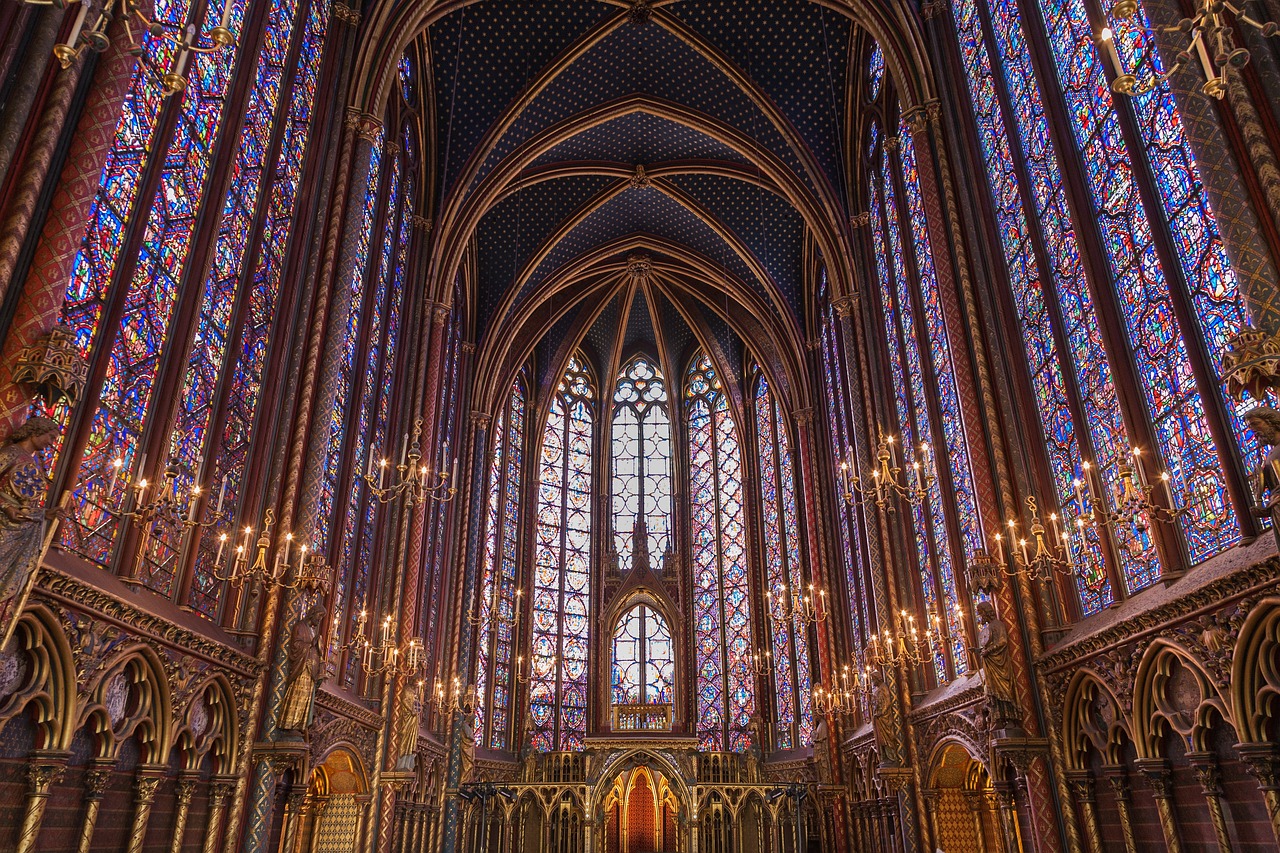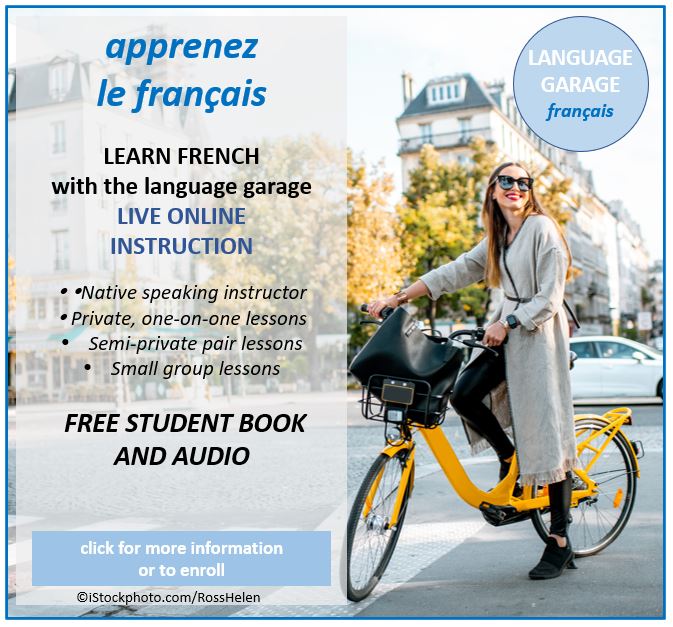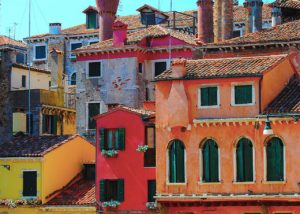Image by ian kelsall from Pixabay
In this post we’ll learn some basic French vocabulary and grammar that you can use to describe things.
C’est de quelle couleur ? What color is it?
Let’s start with colors: noir/noire black; blanc/blanche white; rouge red; bleu/bleue blue; jaune yellow; vert/verte green; brun/brune, marron brown; gris/grise gray.
- Le chien est noir.
The dog is black. - Le chat est blanc.
The cat is white. - Notre voiture est bleue.
Our car is blue. - Le drapeau français est bleu, blanc, et rouge.
The French flag is blue, white, and red.
GRAMMAR TIP! Remember that French adjectives agree with the noun they modify. The typical pattern of endings is – (masculine singular), –e (feminine singular), –s (masculine plural), –es (feminine plural), for example:
- un chien noir a black dog
- une vache noire a black cow
- des chiens noirs black dogs
- des vaches noires black cows
Blanc is a bit irregular in the feminine: blanche, blanches.
- une voiture blanche a white car
- des voitures blanches white cars
Marron is invariable because it’s actually a noun (chestnut).
- des bottes marron brown boots
You can read much more about French adjectives and test yourself in this post and in this post.
C’est bon ! That‘s good!
Now let’s look at several other important basic adjectives: bon/bonne good; mauvais/mauvaise bad; grand/grande, gros/grosse big; petit/petite small; beau, bel/belle beautiful; laid/laide, moche ugly; vieux, vieil/vieille old; nouveau, nouvel/nouvelle new; long/longue long; court/courte short; haut/haute high; bas/basse low; vide empty; plein/pleine full; large wide; étroit/étroite narrow; dur/dure hard; doux/douce, mou/molle soft; difficile difficult; facile easy.
- C’est un bon/mauvais restaurant.
It’s a good/bad restaurant. - C’est une bonne/mauvaise chanson.
It’s a good/bad song. - Le film est vieux/récent.
The film is old/new. - La ville est belle/grande.
The city is beautiful/big. - La rue est large/étroite.
The street is wide/narrow. - Le lit est dur/mou.
The bed is hard/soft. - Le verre est plein/vide.
The glass is full/empty.
GRAMMAR TIP: Remember that nouveau, beau, and vieux all have the special masculine singular forms nouvel, bel, and vieil that are only used right before a noun.
- un nouvel étudiant
a new student - un bel appartement
a beautiful apartment - un vieil homme
an old man
You can read much more about French adjectives and test yourself in this post and in this post.
Do you want to learn French?
Check out our other posts on French language, culture, and more. And if you’re looking for convenient and affordable live French lessons with a real teacher, check out The Language Garage. Our lessons are given online in a virtual classroom, so it doesn’t matter where you live or work. We can come to you. And we have flexible options, with a free trial so that you can decide if there’s a fit. Check us out!





